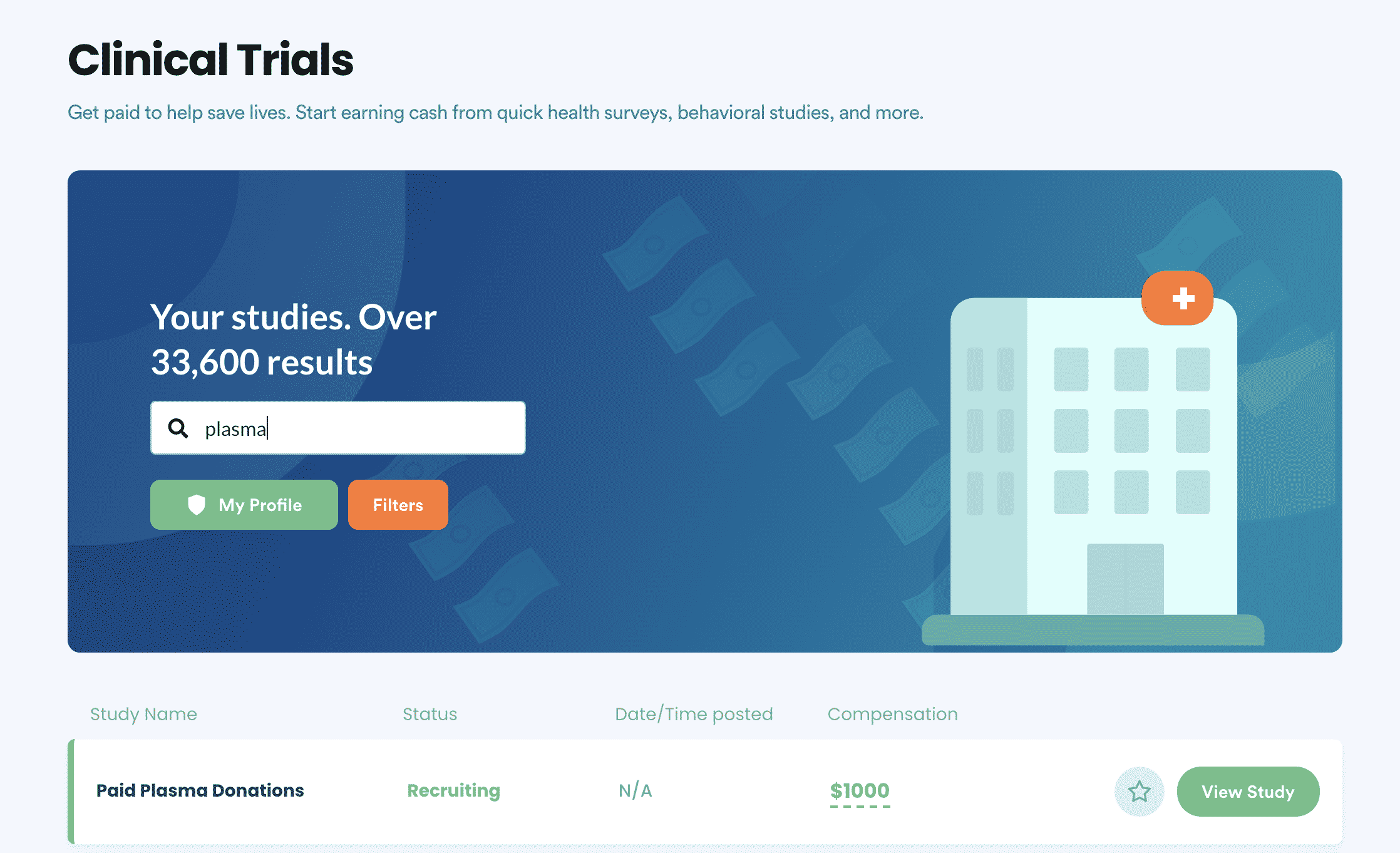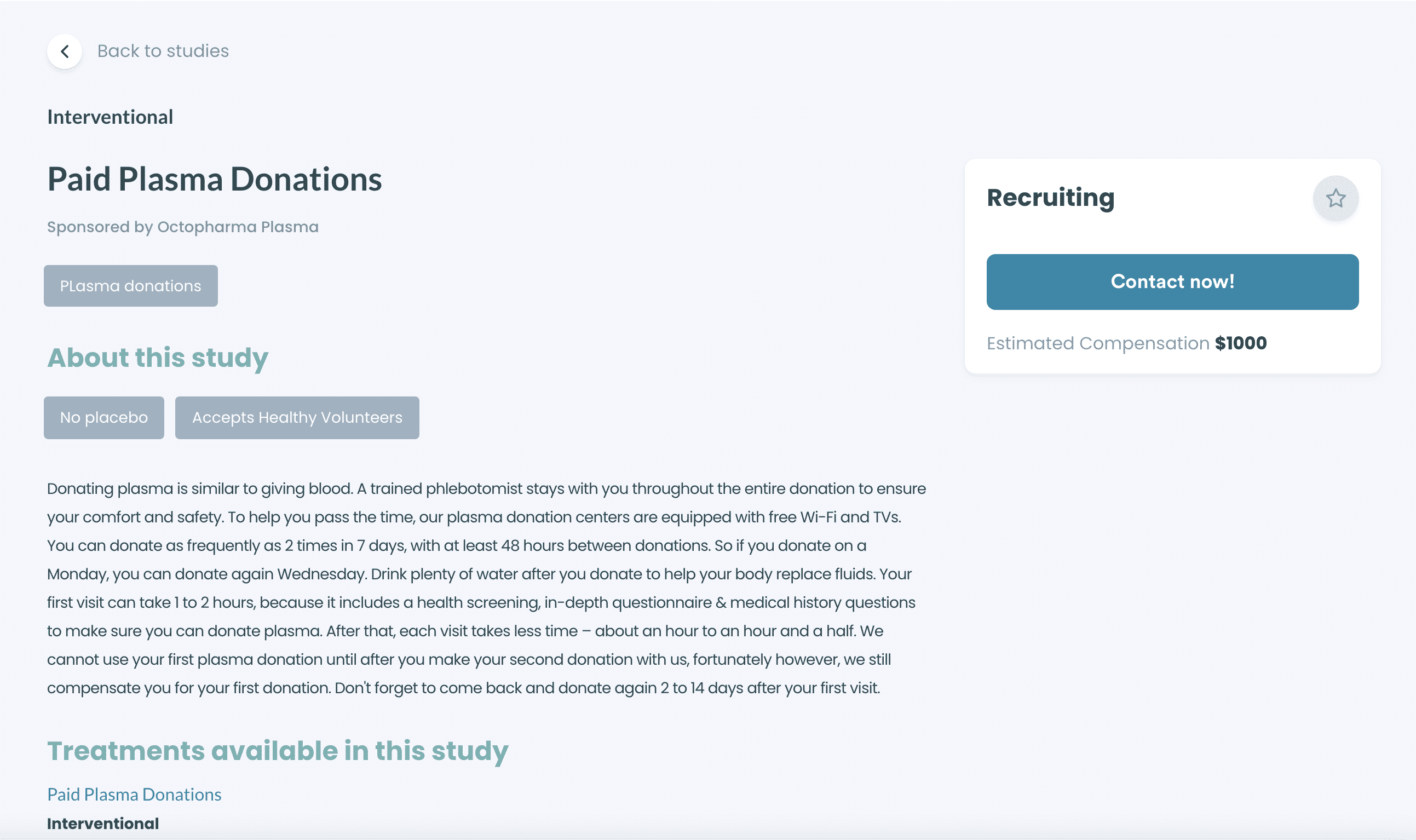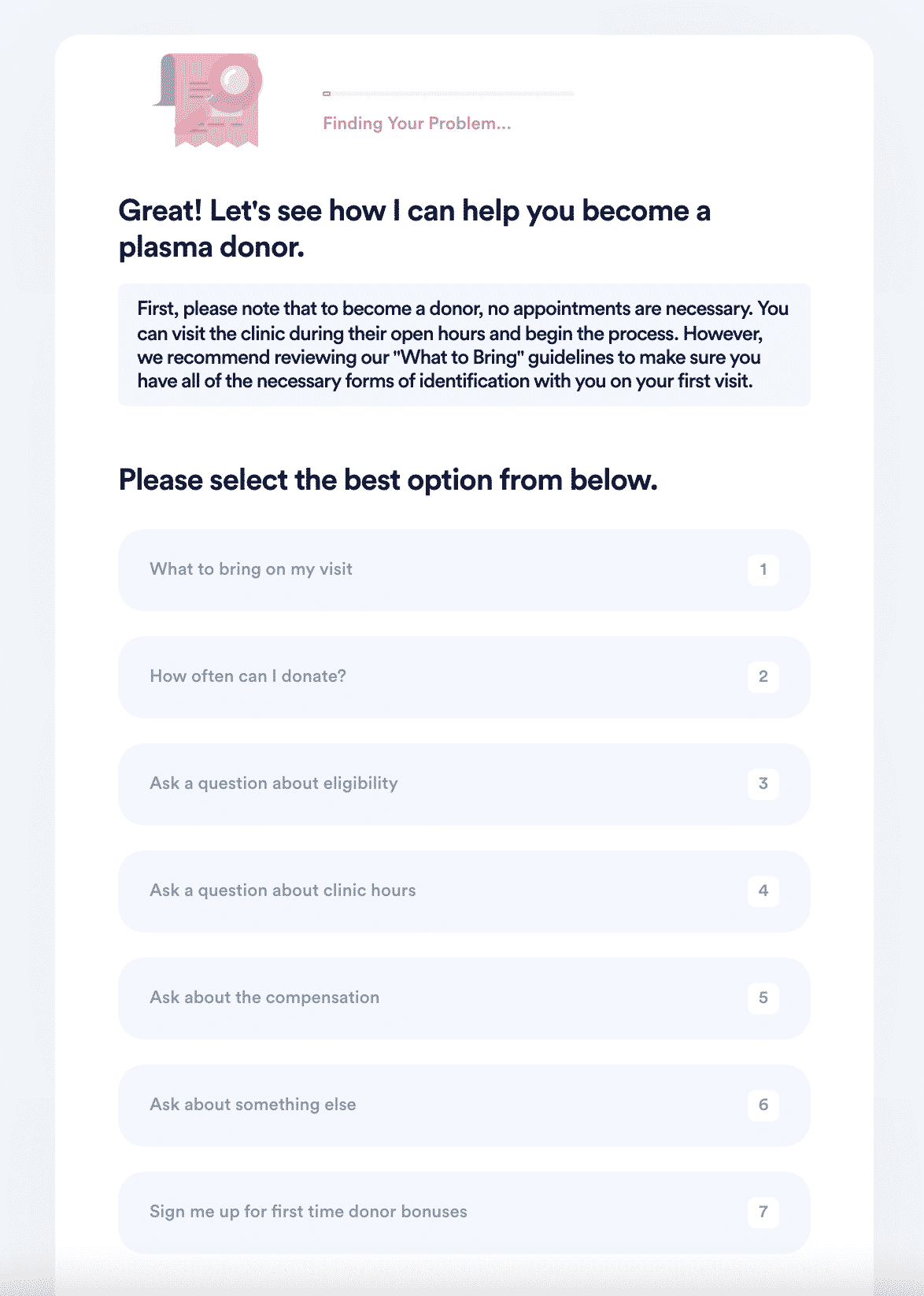Best Places For Plasma Donation In Utah
If you've ever thought about donating plasma in Utah, then there are a few things that you should know before deciding to go forward. Not only can you make a positive impact on someone's life, but by donating, most people also receive cash for each donation.
Donating plasma is one way to give back to the community, and many times, it can be life-changing for those that receive the treatment.
Before you process , you first need to determine whether or not you qualify. It is a fairly easy process, but some requirements must be met first before getting started with the donation process. DoNotPay is here to help.
What Is Plasma and How Is It Used?
It is essential to learn about plasma before scheduling your . Plasma is one of the four basic components that make up blood. The other three are red blood cells, white blood cells, and platelets.
Plasma plays a major role in blood clotting and transferring oxygen throughout our bodies. When you donate plasma, it is separated from your whole blood, which makes up about 55 percent of the volume of blood.
Plasma is also the component that holds the human growth hormone, which helps with tissue repair and healing. This same substance can be used to treat those with dwarfism, burns, cancer, accident victims, and physical trauma. It can help children grow taller, burn patients recover faster, or someone heals more quickly after surgery.
What Is the Difference Between Plasma, Blood, and Bone Marrow Donation?
- When you donate whole blood or red blood cells, you can help those with cancer, anemia, or other serious conditions that can be treated through a blood transfusion.
- When you donate platelets, you are donating the component of your blood that helps prevent excessive bleeding after surgery.
- Finally, when you donate bone marrow, your actual bones are extracted and used to help those with severe medical conditions like leukemia. When donating bone marrow, patients need daily injections of growth factors for many weeks after the donation process.
How Often Can You Donate Plasma?
Most people who regularly donate plasma can do so up to twice a week. Although you want to help those in need, it is important to take care of your health and wellness, too.
Plasma Donor Eligibility Requirements
To donate plasma, you need to meet some basic eligibility requirements:
- You must be at least 18 years old.
- You must weigh at least 110 pounds.
- You must have a valid photo identification with you when you go in to donate.
After meeting these requirements, you are ready to begin giving plasma. When you donate, there is a donation screening questionnaire that will ask some basic questions about your health and lifestyle before beginning the actual donation process. This screening process also includes a basic physical that will check your vital signs, heart rate, and temperature.
Plasma Donation Locations in Utah
Donating plasma is a great way to give back to your community and help those who need medical treatment. Some places in Utah offer this donation service, including:
| Address | Phone Number | Operation Hours |
| CSL Plasma - Midvale
145 West 7200 South, Midvale, UT 84047 | (801) 304-3240 | Mon-Fri 7am-7pm; Sat 8am-3pm; Sun Closed |
| CSL Plasma - Salt Lake
2978 South State Street, S. Salt Lake City, UT 84115 | (801) 485-5085 | Mon-Fri 7am-7pm; Sat 7am-3pm; Sun 7am-5pm |
| BioLife Plasma Services - American Fork
632 N 900 W, American Fork, UT 84003 | (801) 763-0050 | Mon-Thurs 6am-8pm; Fri 6am-7pm; Sat 6am-6pm; Sun 6am-3pm |
| BioLife Plasma Services - Ogden
113 N Harrisville Rd., Ogden, UT 84404 | (385) 288-3024 | Tues-Thurs 11am-7pm; Fri 9am-5pm; Sat 9am-5pm; Sun-Mon Closed |
| BioLife Plasma Services - Riverton
13503 S Hamilton View Rd., Riverton, UT 84065 | (801) 253-6700 | Mon 9am-7pm; Tues-Thurs 6am-7:30pm; Fri 6am-6:30pm; Sat 6am-5pm; Sun 8am-3pm |
| BioLife Plasma Services - St. George
816 North 2860 East, St. George, UT 84790 | (435) 627-9102 | Mon 6am-7:30pm, Tues-Thurs 5:30am-7:30pm; Fri 6am-7:30pm; Sat 6am-4pm; Sun 8am-3pm |
How Much Money Can I Make From Donating Plasma in Utah?
The pay for donating plasma varies from region to region and from donor center to donor center depending on a few different factors:
- The current demand for plasma.
- The number of donations completed at that donor center at that time.
- The number of centers currently in your area.
The average pay for donating plasma is around $30 per donation when you have all three of these factors taken into consideration, but it can be more or less depending on the specific donor center. Most centers will let their donors know what the pay rate is in their area so that you can get an idea of what to expect.
How to Donate Plasma in Utah Step-By-Step
If you've looked into how to donate plasma, you may be wondering what the process is like and whether or not it's safe. We have all of this information covered for you so that it can be easy to get started today:
Step 1: Look Up the Donor Centers in Your Area
The first step in donating plasma in Utah is knowing the closest donor center near you. Most places have a list of all of their donation centers online so that you can look up where they are and when they're open before calling ahead.
Step 2: Call the Donation Center
Once you know which locations are closest to you, it's time to call them to set up an appointment. Find the phone number online and dial it so that you can speak with someone directly about donation packages, prices, availability, and more.
Step 3: Arrive Early for Your Appointment
You want to make sure you arrive early for your appointment so you have everything prepared before they take you back. It means that you should bring a valid form of identification, wear clothes that are comfortable to sit in for an extended period, and eat something before donating plasma.
Step 4: Fill Out the Donor Form
When it's time for your donation session, they will take you back to fill out some paperwork so that they can get your medical history. Fill out the form as thoroughly as possible to have all of the information needed before you're given care.
Step 5: Provide a Blood Sample
Once you've completed the donor form, you will next need to provide them with a blood sample through a finger prick test so that they can test your iron levels. For some donors, they will need to take more than one blood sample to make sure that all of the information is correct.
Step 6: Relax During Collection
The final step in donating plasma is enjoying a movie or other form of entertainment while you're hooked up to their machine and your plasma is collected. You can typically ask for a snack and drink or read a book while you're donating to make this process go faster and smoother.
Next Steps for Plasma Donation in Utah if You Can't Do It Yourself
If you've tried to donate plasma or if you're still looking into ways that you can help, but just don't think that you'll be able to complete the process on your own there is always another option: DoNotPay.
DoNotPay is a software that helps people complete tasks that they would otherwise have trouble with, such as donating plasma. We can help you look up locations near you so that you always know where to go when you are in need of compensation for your plasma donations.
We can also serve as an intermediary between customers and donation centers if there are ever any questions or concerns about the process, payment options, eligibility requirements, and more.
Here's how you can use DoNotPay to become a plasma donor:
- Search "plasma donations" on DoNotPay and find the nearest donation clinic through our clinical trials product.

- Select the "Contact Now" button to learn more about eligibility criteria, contact the clinic with questions, or sign up for first-time donor bonuses.

- Verify your information and submit your inquiry! DoNotPay will contact the clinic on your behalf and make sure your questions get answered.

What Else Can DoNotPay Do?
DoNotPay helps you complete tasks that you might otherwise struggle with, such as donating plasma. We can also help you ensure that you are getting compensated for your hard work in the correct ways. Some of our other services include:
- Change Mailing Address
- Airline Flight Compensation Hacks
- Cancel Any Service or Subscription
- HR Complaints
- Identity Theft
DoNotPay helps you complete your tasks without having to do them alone. Use DoNotPay today and start taking control of your day!


